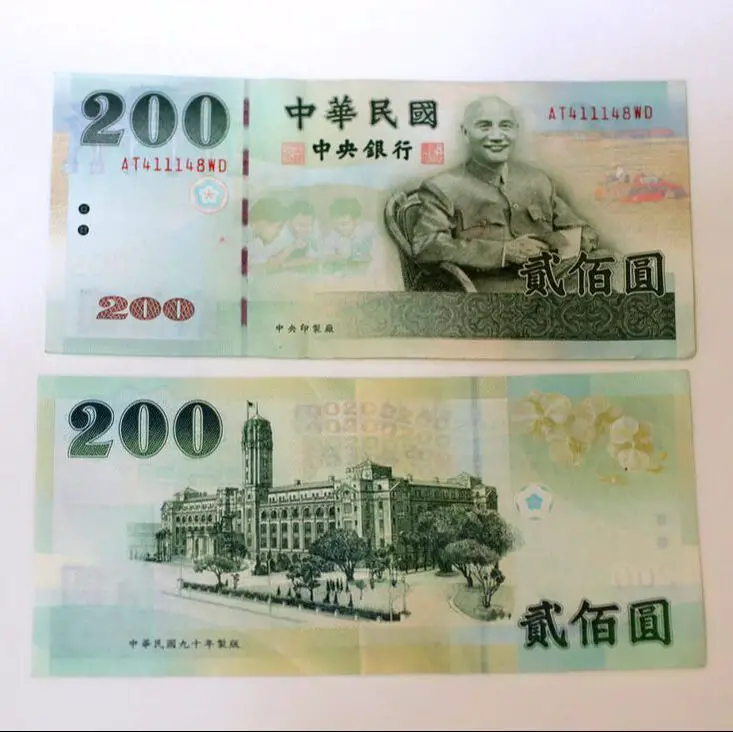
Planning a trip to Taiwan with your little ones? It’s important to know which currency is used in Taiwan and how to handle money when traveling with kids. Taiwan uses the New Taiwan Dollar (TWD) as its currency, and it’s always a good idea to have some cash on hand for small purchases and emergencies. However, managing money with kids can be a challenge. Teaching them about the currency, setting a budget, and giving them a chance to make their own purchases can help build their financial skills while making the trip more enjoyable for everyone.
Currency in Taiwan
Taiwan uses the New Taiwan Dollar (TWD) as its official currency. The New Taiwan Dollar is commonly referred to as the NT Dollar or simply the NT. It is denoted by the symbol “NT$” or “NTD”. The currency is issued by the Central Bank of the Republic of China (Taiwan). When traveling to Taiwan, it’s important to be aware of the currency and how to handle money efficiently, especially when traveling with kids.
Exchanging Currency
Banks and Currency Exchange Offices
One of the most common ways to exchange currency in Taiwan is through banks and currency exchange offices. These are easily accessible in major cities and tourist areas. Banks often offer competitive rates, but it is advisable to compare rates between different banks and exchange offices to get the best value for your money. Keep in mind that banks may have limited hours and may be closed on weekends and public holidays, so plan your currency exchange accordingly.
Airport Currency Exchanges
Another option for exchanging currency is through airport currency exchange counters. These are conveniently located at international airports in Taiwan and offer the convenience of exchanging currency upon arrival. However, it’s worth noting that airport currency exchange rates may be slightly unfavorable compared to banks and exchange offices in the city. If possible, exchange a small amount of currency at the airport to cover immediate expenses and then seek out better rates at a bank or exchange office later on.
ATMs and Credit Cards
Using ATMs and credit cards can be a convenient way to access cash or make payments in Taiwan. ATMs are widely available throughout the country and accept major international credit and debit cards. However, it’s important to notify your bank or credit card provider of your travel plans to ensure uninterrupted access to your funds. Keep in mind that some ATMs may have withdrawal limits, so plan accordingly.
Credit cards are widely accepted in hotels, restaurants, and larger stores in Taiwan. They provide a convenient and secure way to make payments. However, it’s always good to carry some cash for smaller establishments or in case of emergencies. Be aware that some smaller establishments may impose a minimum spending amount for credit card transactions.
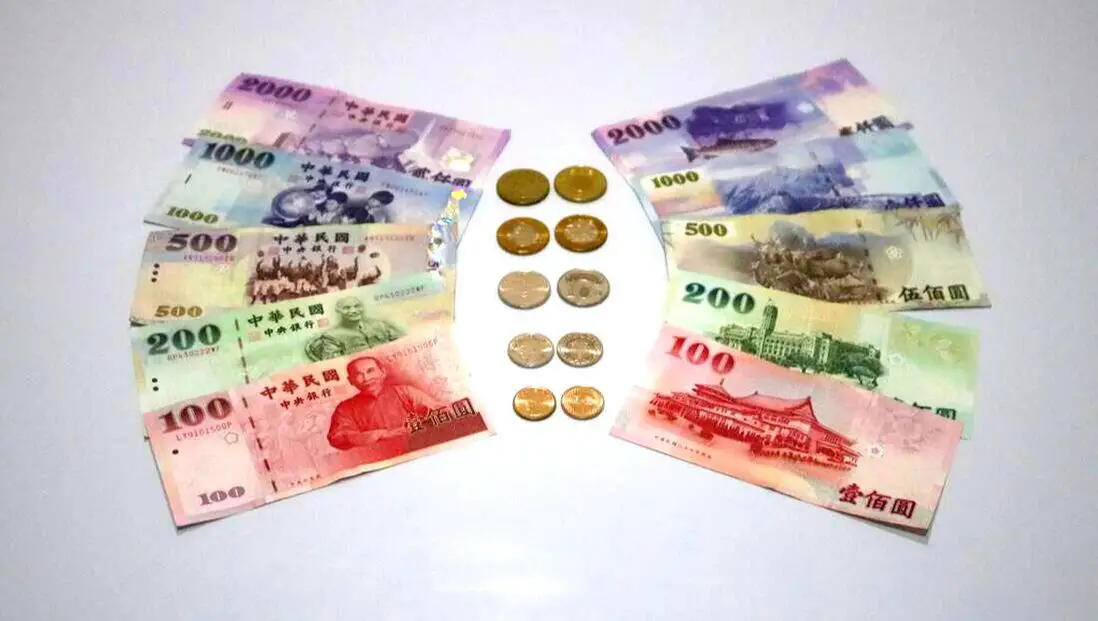
This image is property of www.foreignersintaiwan.com.
Handling Money with Kids
Teaching Kids About Currency
When traveling to Taiwan with kids, it’s a great opportunity to teach them about the local currency and money management. Start early by introducing them to the concept of currency and explaining the value of each banknote or coin. You can show them real-life examples and encourage them to handle the currency (under supervision) to develop their familiarity.
Giving Allowance in Taiwan
Giving kids an allowance can be a valuable way to teach them about financial responsibility. Determine an appropriate allowance amount based on your child’s age and financial needs. You can involve them in budgeting decisions, such as allocating funds for snacks or small souvenir purchases during the trip. This will help them understand the value of money and make responsible spending choices.
Budgeting and Saving
Teaching kids about budgeting and saving is an essential life skill. Help them set a budget for their trip to Taiwan and encourage them to save money for specific goals, such as a special souvenir or a local activity. This will instill a sense of responsibility and help them understand the importance of saving for future needs and wants.
Safety Tips
Ensure the safety of your money and belongings while traveling with kids in Taiwan by following a few simple tips. Use secure money belts or pouches to keep your cash and important documents safe. Avoid flashing large amounts of cash in public places to reduce the risk of theft or unwanted attention. Additionally, always use reliable and reputable exchange services to minimize the chances of counterfeit currency.
Understanding the New Taiwan Dollar (TWD)
Denominations of Banknotes
The New Taiwan Dollar (TWD) banknotes are available in several denominations, including NT$2,000, NT$1,000, NT$500, NT$200, and NT$100. Each banknote features different colors, designs, and security features. Take time to familiarize yourself and your kids with the different banknotes to ensure ease of use and avoid any confusion.
Value of Coins
Coins in Taiwan come in denominations of NT$50, NT$20, NT$10, NT$5, and NT$1. The coins are generally lightweight and easy to handle. Children can learn about the value of each coin and practice counting and making simple transactions using them. Encourage your kids to keep their coins organized and in a separate section of their wallet for easy access.
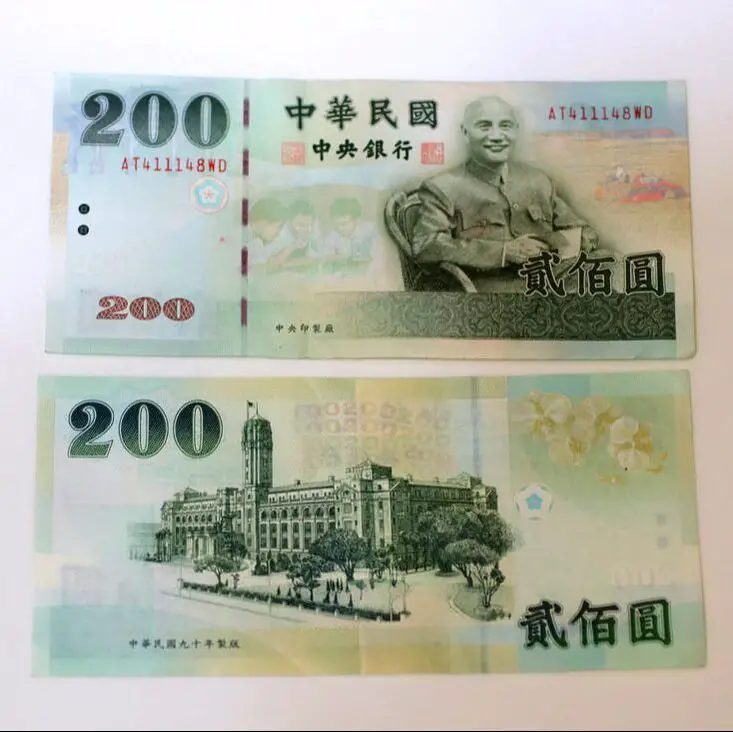
This image is property of www.foreignersintaiwan.com.
Exchanging Currency in Taiwan
Banks in Taiwan
There are several banks in Taiwan that offer currency exchange services. Some of the major banks include Bank of Taiwan, Chinatrust Commercial Bank, and Cathay United Bank. These banks usually have dedicated foreign exchange departments where you can exchange your currency for New Taiwan Dollars. It’s advisable to visit banks in major cities or tourist areas, as they are more likely to have English-speaking staff and offer competitive rates.
Currency Exchange Offices
In addition to banks, currency exchange offices are also prevalent in Taiwan. These offices specialize in handling foreign currency exchange and can often provide competitive rates. Look for authorized currency exchange offices or those recommended by reputable sources to ensure a fair exchange of your money. Be cautious of unauthorized currency exchange services, as they may not offer favorable rates or may engage in fraudulent practices.
Airport Currency Exchanges
Pros and Cons
Airport currency exchange counters offer convenience for travelers by allowing them to exchange their currency upon arrival. The main advantage is the availability of exchange services at any time, accommodating your immediate currency needs. However, these counters may have slightly higher fees or less favorable exchange rates compared to banks or exchange offices in the city. It’s advisable to exchange a small amount of currency at the airport and seek better rates at a bank or exchange office later on.
Recommended Alternatives
To maximize the value of your money, consider alternatives to airport currency exchanges. As mentioned earlier, banks and exchange offices in the city can often provide better rates. Another option is to use ATMs in Taiwan, which allow you to withdraw cash in local currency using your debit or credit card. This method tends to offer competitive rates and provides the convenience of accessing cash when needed.
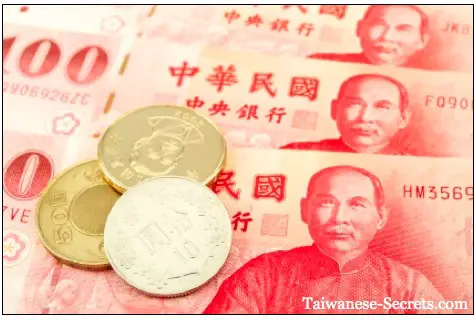
This image is property of www.taiwanese-secrets.com.
Using ATMs and Credit Cards
Availability of ATMs
ATMs are widely available throughout Taiwan, particularly in urban areas and popular tourist destinations. International banks such as Citibank and HSBC have branches in major cities and often have ATMs that accept foreign cards. Local banks also have extensive ATM networks. Withdrawing cash from ATMs is generally a convenient way to obtain local currency, and ATMs usually provide instructions in multiple languages to assist foreign visitors.
Types of Credit Cards
Major credit cards, such as Visa and Mastercard, are widely accepted in Taiwan. They are commonly used for hotel bookings, dining at restaurants, shopping, and other transactions. American Express and Discover cards may be accepted at selected establishments but are not as widely recognized. It’s always a good idea to carry multiple forms of payment, including cash, to ensure you have alternatives in case of any issues.
Transaction Fees and Conversion Rates
When using ATMs or credit cards in Taiwan, be aware of any transaction fees and currency conversion rates that may apply. Your bank or credit card provider may charge a foreign transaction fee, which can vary depending on the provider and type of account you have. Additionally, some ATMs in Taiwan may charge a fee for cash withdrawals using foreign cards. Before your trip, check with your bank or credit card provider to understand the fees involved and compare rates to find the most cost-effective option.
Teaching Kids About Currency
Start Early
Introducing kids to the concept of currency at an early age can help them develop important money management skills. Teach them about the value of money and how it is used to purchase goods and services. Explain the different denominations of the local currency and encourage them to handle and count the coins and banknotes to enhance their understanding.
Real-Life Examples
To make learning about currency more engaging, provide real-life examples of transactions in Taiwan. Show your kids how much certain items cost in the local currency and explain the equivalent value in their home currency. This will help them develop a better sense of the value of money and provide practical examples of currency conversion.
Interactive Activities
Make learning about currency fun and interactive with various activities. Play games where your kids can practice counting coins and making simple transactions. Create a pretend shop where they can use play money to buy goods, allowing them to practice their math skills and understand the concept of exchanging money for goods or services. Engaging them in hands-on activities will make the learning experience enjoyable and memorable.
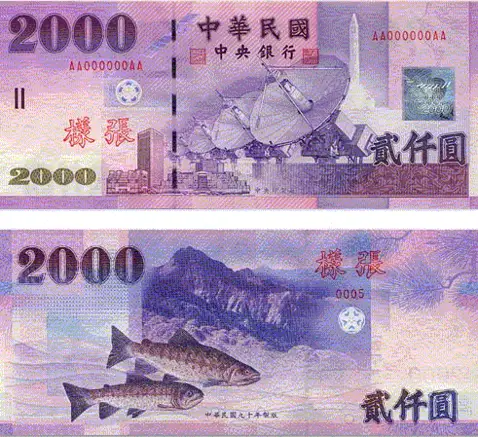
This image is property of www.smoney.com.au.
Giving Allowance in Taiwan
Determining Allowance Amount
When giving kids an allowance in Taiwan, consider factors such as their age, the duration of your trip, and their financial needs. Determine an appropriate allowance amount that allows them to experience the local culture and make small purchases while also teaching them the value of money. It’s important to strike a balance between providing them with enough funds to enjoy their trip and encouraging responsible spending habits.
Frequency of Payments
Decide on the frequency of allowance payments based on the duration of your trip and your child’s financial needs. You could choose to give a weekly allowance or allocate funds for specific periods during the trip. This can help kids better manage their money by budgeting for their expenses over a specific time frame.
Teaching Financial Responsibility
Giving kids an allowance in Taiwan can be an opportunity to teach them financial responsibility. Encourage them to plan their spending by setting goals and making thoughtful choices. Teach them the importance of saving for long-term goals and how to differentiate between needs and wants. By involving them in budgeting decisions and providing guidance, you can instill valuable money management skills that will benefit them throughout their lives.
Safety Tips When Handling Money
Secure Money Belts or Pouches
To keep your money and important documents safe while traveling in Taiwan, use secure money belts or pouches. These accessories are designed to be worn under your clothing and can keep your cash, cards, and passports out of sight and reach of potential thieves. Invest in a high-quality, theft-resistant money belt or pouch to ensure the security of your valuables.
Avoid Flashing Large Amounts
When handling money in public places, it’s best to avoid flashing large amounts of cash. This can attract unwanted attention and increase the risk of theft or scams. Keep smaller denominations of currency easily accessible for everyday expenses and store larger amounts securely in your money belt or pouch.
Using Reliable Exchange Services
To minimize the chances of encountering counterfeit currency, use reliable and reputable exchange services. When exchanging your money for New Taiwan Dollars, opt for authorized banks or currency exchange offices. Avoid street vendors or unauthorized individuals offering currency exchange services, as they may engage in fraudulent activities. By using reputable services, you can have peace of mind knowing that your money is legitimate and secure.
By following these tips and taking a proactive approach to handling money in Taiwan, you can have a smooth and worry-free experience. Traveling with kids provides an excellent opportunity to teach them important financial skills and foster a sense of responsibility. So, make the most of your trip to Taiwan by ensuring you are well-prepared when it comes to currency exchange and money management.
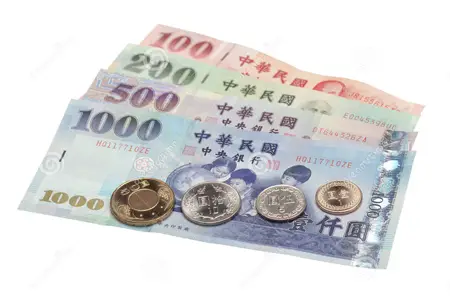
This image is property of www.shoreexcursions.asia.



